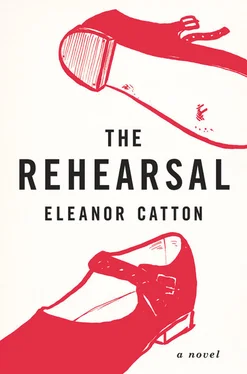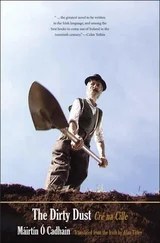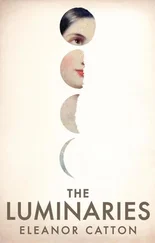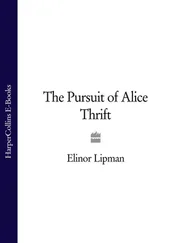“Married to a man?”
“Yes, to a man.”
“But you were lovers once,” Julia says.
“No.”
“Even once?”
“No.”
“You’re lying.”
“What does it matter anyway, how it was?” the saxophone teacher snaps. “I could only ever tell you how I remember it, never how it was. My wrinkled cheesecloth of a memory, all balled up and mothy with the sunlight glinting through. And you lied about your favorite thing. You stole it from someone else and used it as your own.”
Julia scowls and says nothing. After a moment she tosses her head and says, “You probably know it all anyway, from somebody else.”
Friday
Stanley is waiting for Isolde after her lesson. From inside he can hear snatches of a tune played by two saxophones together, one confidently leading, the other duller and shyer and more ordinary. He is nervous. He wishes he’d scripted something to say.
At last the saxophones cease and he thinks he hears, through the open window, the faint rumble of Isolde’s teacher’s voice, and Isolde laughing. He shuffles his feet.
After a few minutes Isolde emerges from the building and trots down the short flight of steps to the courtyard, her saxophone case in her hand. She looks strange: she is smiling too readily and too brightly, and her eyes are sad. Stanley doesn’t notice. He keeps pulling at his collar and his hair, and when he looks at her he doesn’t hold her gaze for long.
“Hey you,” she says. “Did you hear me that time?”
“Yeah,” Stanley says. “You’re pretty good.”
“Want to come to my recital? You don’t have to. It might be boring.”
“Sure,” Stanley says awkwardly. He falls into step beside her, and as they walk out of the courtyard he looks over his shoulder at the saxophone teacher’s window. Is there somebody there, standing by the curtain, looking down at them? Is the next student waiting patiently in the hall for the saxophone teacher to finish watching, smarten her hair, open the door and invite her in? He can’t tell from this distance and soon the window disappears behind the branches of the ginkgo tree.
“My parents will be there,” Isolde says. “They’re really stoked to meet you. Especially Dad. My sister had, like, this weird thing this year where she slept with a teacher and Dad’s really keen to get back to normal or whatever. He’s just stoked you’re not in your thirties and balding and my teacher at school.”
Stanley exhales sharply and almost pulls away from her. There it is: all the information he needed, the clinching information, tumbling out of her mouth in one careless little burst. Too late.
“Why didn’t you tell me earlier?” he says.
“Oh,” Isolde says airily. “I don’t know. I’m just sick of it, I guess. It’s all anyone talks about any more—just Victoria and the rape or whatever and how hard it’s been. I just didn’t want to talk about it with you.”
She reaches for his hand and pulls him closer to her as they walk, showing more affection than she has before.
“It’s not a big deal,” she says.
“What do you mean, slept with her teacher?” Stanley says.
“Well, apparently the story is now that she didn’t even sleep with him,” Isolde says. “I don’t know. It keeps changing. She gets all cagey.”
“You must know,” Stanley says. “She’s your sister.”
Isolde gives him an odd look. “I don’t,” she says. “I don’t know anything.”
They walk on in silence for a while.
“Do you talk about me to your sax teacher?” Stanley says. His voice is high and strained.
“I guess,” she says. “I mean, I’ve mentioned you. Music teachers are like therapists, kind of. You meet up once a week and tell them everything you need to tell them and then you disappear again. It’s like therapy.” Her voice is high too, as if she doesn’t believe her own lines.
“What do you say about me?” Stanley says.
“Oh, you know,” Isolde says. Now she looks embarrassed.
Stanley makes a swift decision to tell Isolde half the truth. He stops walking and turns toward her.
“She laid a complaint about me,” he says. “Your teacher. She must have been watching through the window. She complained that I’ve been harassing you—because you’re so young, I guess, and I’m not. Young. I guess that was why.” He breathes heavily and watches her.
Isolde opens her mouth a little but says nothing. She drags her eyes from Stanley’s face and looks at a pasted advertisement on the wall over his shoulder.
“So what do you say about me?” Stanley says, impatient now. “In your lesson.”
“Nothing,” Isolde says quickly.
“You said you mentioned me.”
“Only briefly.”
“So why would she complain? What does she have against me?”
Isolde shoots him a calculating look. “Are you in trouble?” she says.
“I just want to know what you say about me,” Stanley says loudly. In his frustration he is forgetting that he is only telling Isolde half the truth after all. He begins to blame her. He becomes irritated by her open-mouthed stare, the plump curve of her pouting lip, how childlike she seems.
“It’s this thing with my sister,” Isolde says at last. “I suppose she knows how much it affected me. She knows how vulnerable I am, how impressionable I am, how likely it is that I might act out or do something dumb or end up slutting around, just to make myself heard. It happens, when there’s trauma in a family. She’s protecting me, I guess.”
“From me?”
“Well. Yeah. I mean, probably.”
“And you knew.” He is thoroughly angry with her now.
“No,” Isolde says. “I didn’t know. She acted behind my back, like a clinging mother orchestrating the life of her child.”
“This is bullshit,” Stanley says. “You talking to your teacher about me, the two of you together. It’s bullshit.”
“What are you talking about?”
“You must have made me sound like a rapist.”
“I did not make you sound like a rapist !”
“It’s my reputation,” Stanley says. “My reputation at the school which is at stake. Whatever you said, you made her act like that. You made her complain.”
“I did not make her complain!”
“You must have,” Stanley shouts. “You did. With whatever you said.”
Cars are passing. The passengers press their faces to the windows to watch the two of them fight. Stanley has his arms flung wide and Isolde’s hands are crossed over her belly. Finally Stanley makes a scissor motion with the flat of his hand that means enough . He is the first to turn and walk away.
Monday
“What would you do,” Julia says, “if I said that you did things to me here, when we were alone? Indecent things. If I confessed to somebody. If I broke down.”
The southerly is gathering above the gables, blackening and bruising and seeming to draw the sky downward. The saxophone teacher crosses the room and turns on the lamp, twitching the curtain against the lowering sky.
“I don’t know what I would do,” she says, without looking at Julia.
“I’d lie,” Julia says, already narrow eyed and pursuing the thought. “I would make up silver lies studded with shards of perfect detail like mosaic splinters, sharp and everlasting, the kind of tiny faultless detail that would make them all sure that what I said was true. I would have alibis. I would bring in other people and teach them a story, and rehearse it so carefully and for so long that soon they’d all start to believe that what they said was actually true.”
“It sounds like a lot of work,” the saxophone teacher says calmly, but her hands and eyes are still and she is watching Julia with all her attention now. “What’s in it for you?”
Читать дальше












